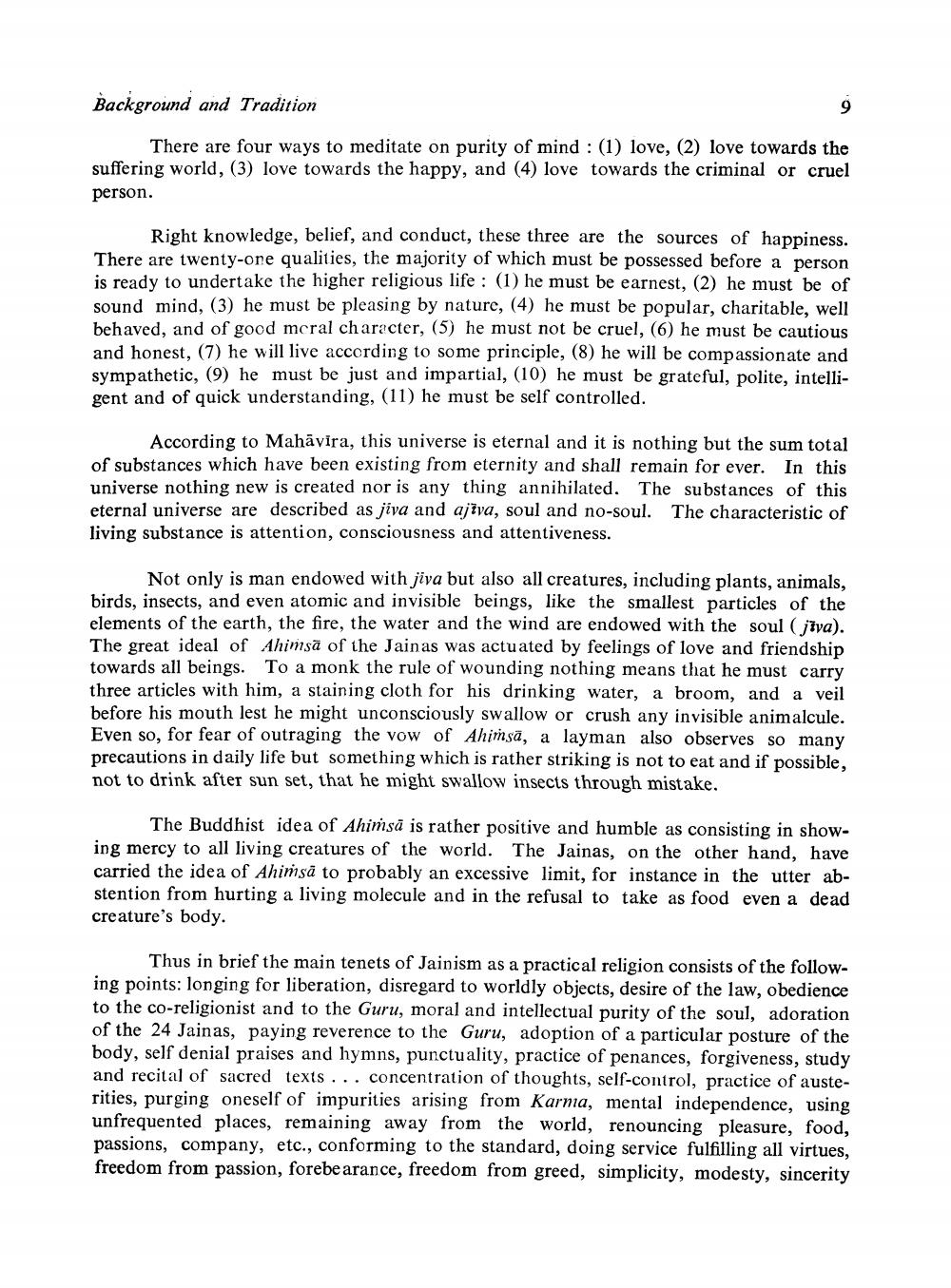________________
Background and Tradition
There are four ways to meditate on purity of mind : (1) love, (2) love towards the suffering world, (3) love towards the happy, and (4) love towards the criminal or cruel person.
Right knowledge, belief, and conduct, these three are the sources of happiness. There are twenty-one qualities, the majority of which must be possessed before a person is ready to undertake the higher religious life : (1) he must be earnest, (2) he must be of sound mind, (3) he must be pleasing by nature, (4) he must be popular, charitable, well behaved, and of good mcral character, (5) he must not be cruel, (6) he must be cautious and honest, (7) he will live according to some principle, (8) he will be compassionate and sympathetic, (9) he must be just and impartial, (10) he must be grateful, polite, intelligent and of quick understanding, (11) he must be self controlled.
According to Mahavira, this universe is eternal and it is nothing but the sum total of substances which have been existing from eternity and shall remain for ever. In this universe nothing new is created nor is any thing annihilated. The substances of this eternal universe are described as jiva and ajiva, soul and no-soul. The characteristic of living substance is attention, consciousness and attentiveness.
Not only is man endowed with jiva but also all creatures, including plants, animals, birds, insects, and even atomic and invisible beings, like the smallest particles of the elements of the earth, the fire, the water and the wind are endowed with the soul (jtva). The great ideal of Ahimsa of the Jainas was actuated by feelings of love and friendship towards all beings. To a monk the rule of wounding nothing means that he must carry three articles with him, a staining cloth for his drinking water, a broom, and a veil before his mouth lest he might unconsciously swallow or crush any invisible animalcule. Even so, for fear of outraging the vow of Ahimsa, a layman also observes so many precautions in daily life but something which is rather striking is not to eat and if possible, not to drink after sun set, that he might swallow insects through mistake.
The Buddhist idea of Ahimsā is rather positive and humble as consisting in showing mercy to all living creatures of the world. The Jainas, on the other hand, have carried the idea of Ahimsā to probably an excessive limit, for instance in the utter abstention from hurting a living molecule and in the refusal to take as food even a dead creature's body.
Thus in brief the main tenets of Jainism as a practical religion consists of the following points: longing for liberation, disregard to worldly objects, desire of the law, obedience to the co-religionist and to the Guru, moral and intellectual purity of the soul, adoration of the 24 Jainas, paying reverence to the Guru, adoption of a particular posture of the body, self denial praises and hymns, punctuality, practice of penances, forgiveness, study and recital of sacred texts ... concentration of thoughts, self-control, practice of austerities, purging oneself of impurities arising from Karma, mental independence, using unfrequented places, remaining away from the world, renouncing pleasure, food, passions, company, etc., conforming to the standard, doing service fulfilling all virtues, freedom from passion, forebearance, freedom from greed, simplicity, modesty, sincerity




